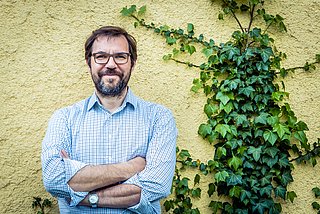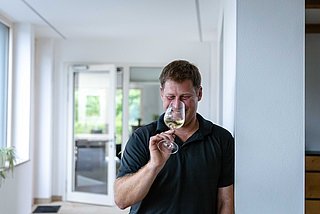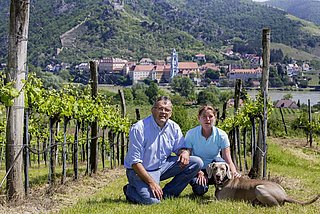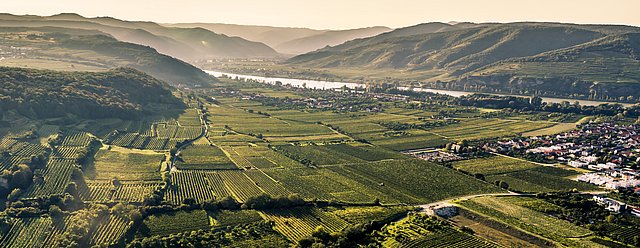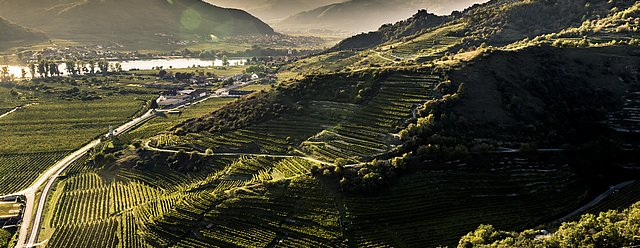
Together – all the way.
Vinea Wachau members say ‘yes’ to Sustainable Austria. The step unifies the Wachau in taking the lead among winegrowing regions – once again.
While hoping for a go-ahead, he was surprised nonetheless. Emmerich Knoll is delighted at the clear majority in favour of the project. Almost 90 per cent of the Vinea Wachau winegrowers attending the meeting on 11 May voted for Sustainable Austria certification. “I am pleased the Wachau has commonly committed to this goal. We are probably one of the first winegrowing regions anywhere in the world to collectively set out on the path to certification,” Vinea Wachau chairman Emmerich Knoll commented. In his mind, the move is logical when seen against the backdrop of the Wachau’s success story: “This now puts the spotlight on the efforts that many family-run farms and estates have always made. You just need to consider the dry stone walling, a prerequisite for winegrowing in the Wachau. The walls are also an important factor in biodiversity, offering a habitat for many and varied species.”

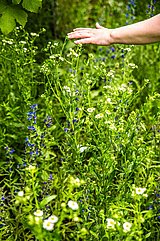
The Wachau’s winegrowers and vintners have intentionally chosen certification under Sustainable Austria. “Because this certificate is based on a farm’s overall footprint and not just on how vineyards are worked. This is not about rules and regulations but about a holistic balance. That’s what we need to achieve,” Emmerich Knoll is convinced.
The Sustainable Austria certificate takes into account ecological, economic and social criteria. Franz Hirtzberger Jr of Spitz is also convinced of the system. “If a farm is not performing as well in one area, it can make up for it in others. What counts in the end is the overall picture – and that we are taking this path together. To me that’s especially important. There will probably soon be a lot of talk, even at tavern get-togethers, about what is and what isn’t sustainable. People will start thinking about things they’ve never before considered. It’s precisely this awareness-raising process that we want to set in motion.”
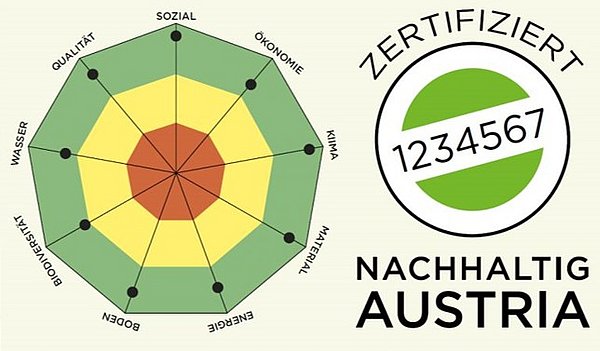
“Should I make another trip with the tractor or not? Where can I save resources? You really do become more aware of how you go about your work,” Andreas Eder of Mauternbach agrees. The quality seal will also bring benefits for marketing Wachau wines: “The market is already demanding wine produced in line with sustainability criteria. Sustainable Austria will help us showcase what many of us are already doing.”
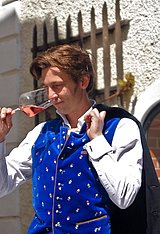
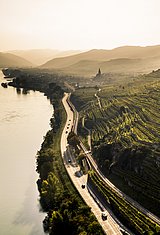
How do farms that are highly dependent on direct sales see the move? “The main thing for our customers is that our wines are natural and taste good. But I find it good that our entire region will in future stand for sustainability. Our parents – the founders of Vinea Wachau – joined forces early one to promote our winegrowing region. Now we are carrying this ideal forward,” says Franz Zottl junior of Weißenkirchen.
In recent years, Heinz Sigl converted his operation to organic farming. He too is convinced of the new quality seal: “We all stand to benefit from Sustainable Austria – even the smallest farms. Anyone can aim for higher standards later. The important thing now is that we are all doing this together.” Vinea Wachau has just demonstrated how well this is working.
